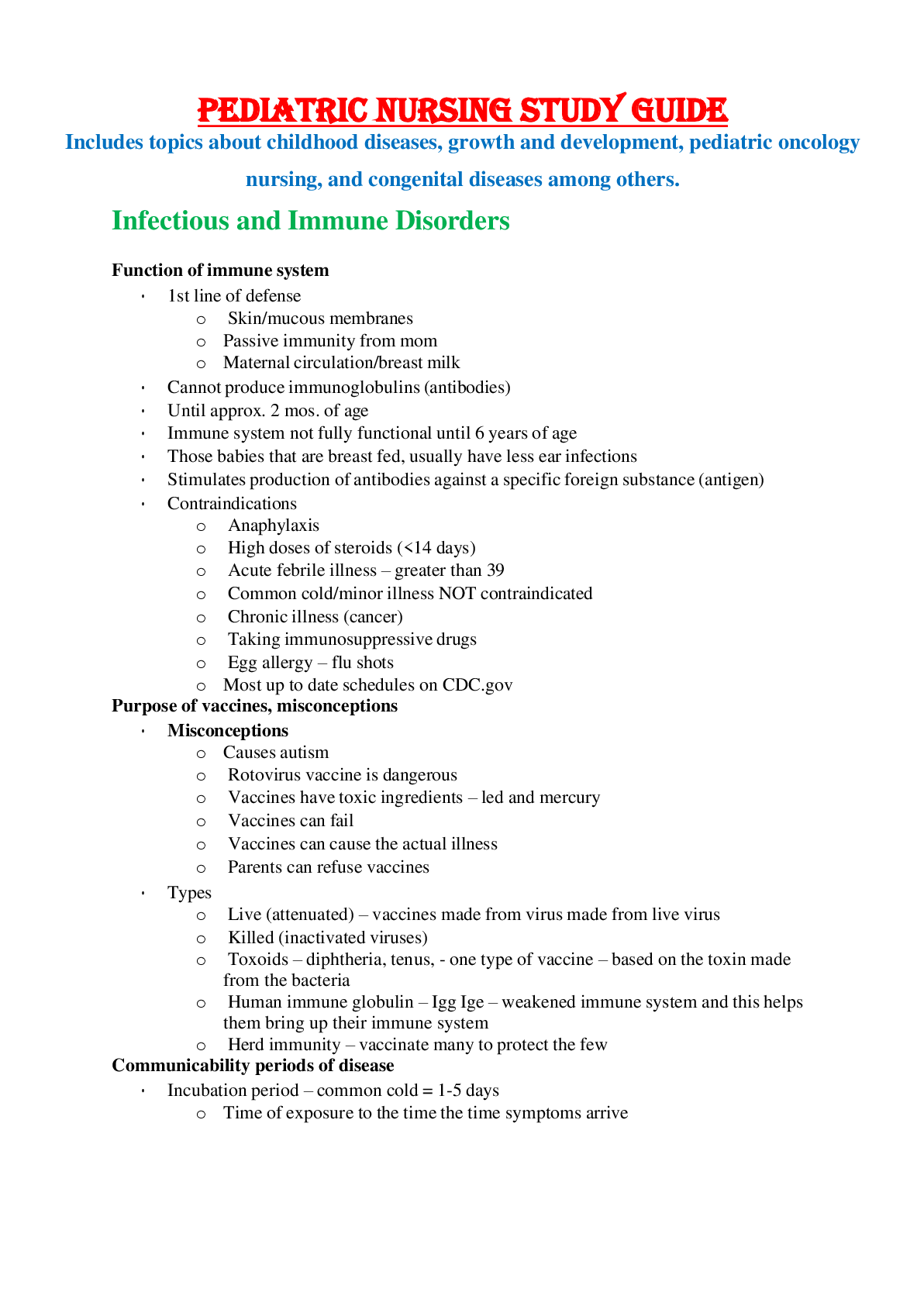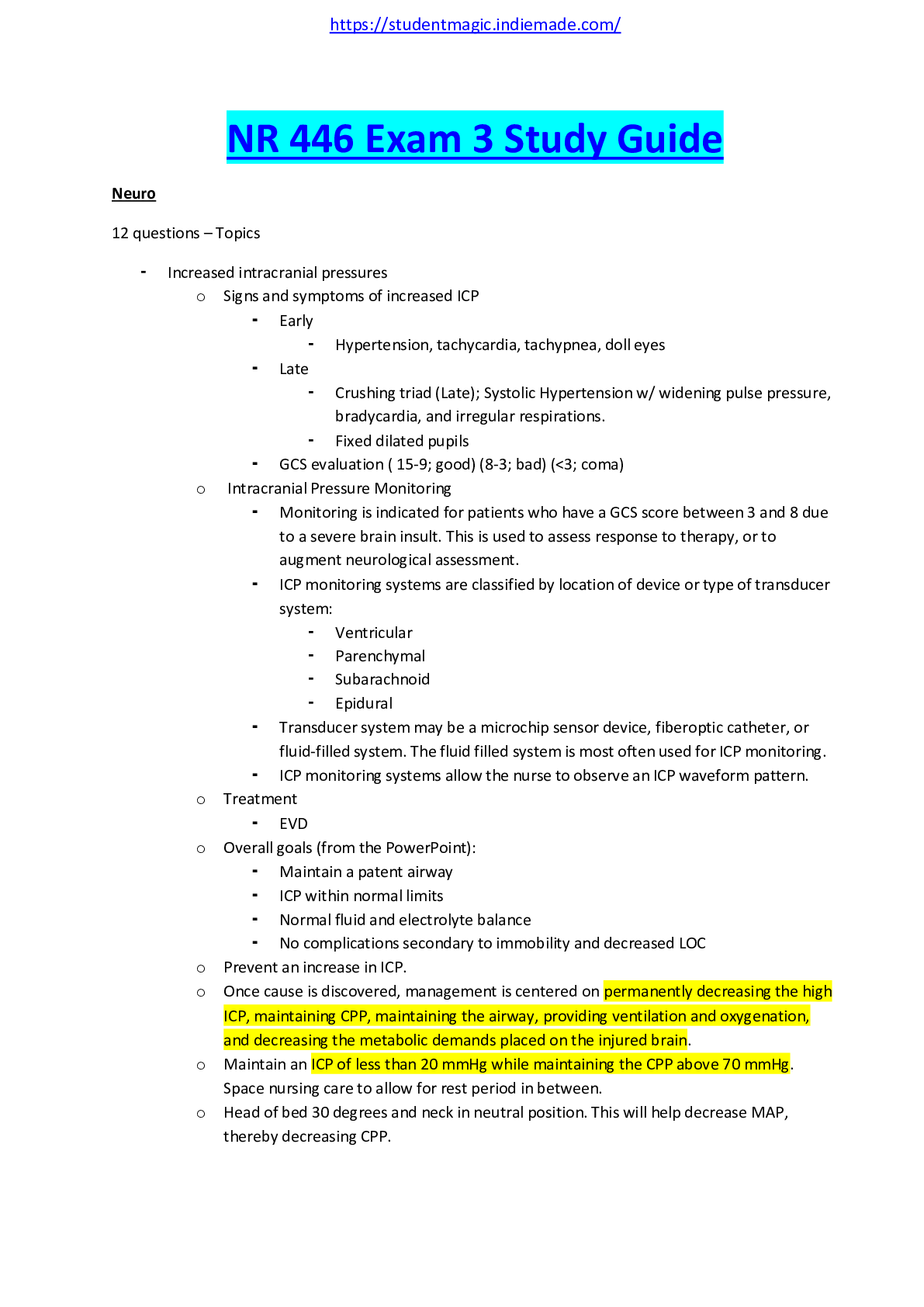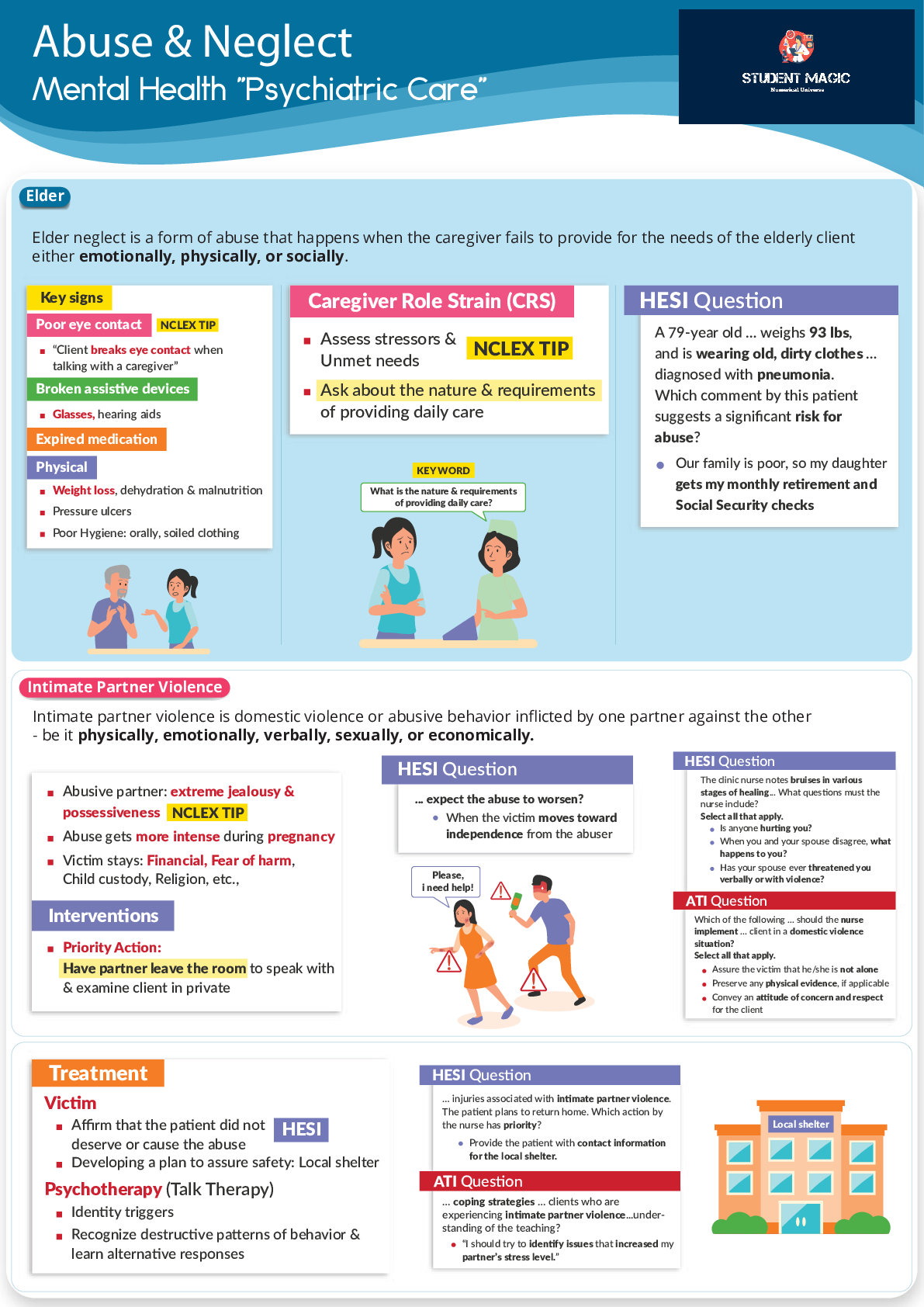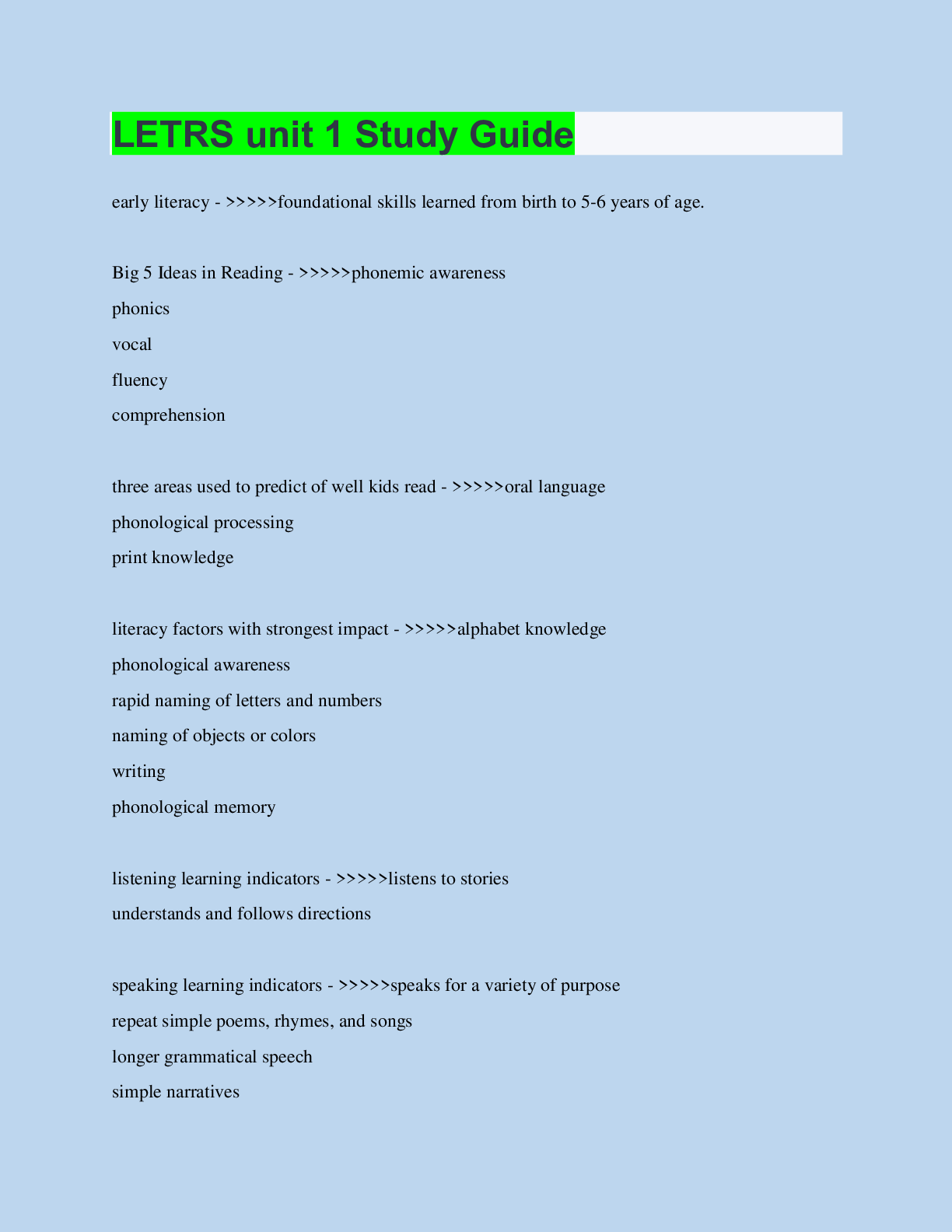*NURSING > STUDY GUIDE > NURS 225 Chapter 33: Assessment of the Cardiovascular System Ignatavicius: Medical-Surgical Nursing, (All)
NURS 225 Chapter 33: Assessment of the Cardiovascular System Ignatavicius: Medical-Surgical Nursing, 8th Edition(revised correct answers)
Document Content and Description Below
1. A nurse assesses a client who had a myocardial infarction and is hypotensive. Which additional assessment finding should the nurse expect? a. Heart rate of 120 beats/min b. Cool, clammy skin c. ... Oxygen saturation of 90% d. Respiratory rate of 8 breaths/min ANS: A When a client experiences hypotension, baroreceptors in the aortic arch sense a pressure decrease in the vessels. The parasympathetic system responds by lessening the inhibitory effect on the sinoatrial node. This results in an increase in heart rate and respiratory rate. This tachycardia is an early response and is seen even when blood pressure is not critically low. An increased heart rate and respiratory rate will compensate for the low blood pressure and maintain oxygen saturations and perfusion. The client may not be able to compensate for long, and decreased oxygenation and cool, clammy skin will occur later. DIF: Applying/Application REF: 638 KEY: Coronary perfusion| hemodynamics MSC: Integrated Process: Nursing Process: Assessment NOT: Client Needs Category: Physiological Integrity: Physiological Adaptation 2. A nurse assesses a client after administering a prescribed beta blocker. Which assessment should the nurse expect to find? a. Blood pressure increased from 98/42 mm Hg to 132/60 mm Hg b. Respiratory rate decreased from 25 breaths/min to 14 breaths/min c. Oxygen saturation increased from 88% to 96% d. Pulse decreased from 100 beats/min to 80 beats/min ANS: D Beta blockers block the stimulation of beta1-adrenergic receptors. They block the sympathetic (fight-or-flight) response and decrease the heart rate (HR). The beta blocker will decrease HR and blood pressure, increasing ventricular filling time. It usually does not have effects on beta2-adrenergic receptor sites. Cardiac output will drop because of decreased HR. DIF: Applying/Application REF: 630 KEY: Beta blocker| medication MSC: Integrated Process: Nursing Process: Assessment NOT: Client Needs Category: Physiological Integrity: Pharmacological and Parenteral Therapies 3. A nurse assesses clients on a medical-surgical unit. Which client should the nurse identify as having the greatest risk for cardiovascular disease? a. An 86-year-old man with a history of asthma b. A 32-year-old Asian-American man with colorectal cancer c. A 45-year-old American Indian woman with diabetes mellitus d. A 53-year-old postmenopausal woman who is on hormone therapy ANS: C The incidence of coronary artery disease and hypertension is higher in American Indians than in whites or Asian Americans. Diabetes mellitus increases the risk for hypertension and coronary artery disease in people of any race or ethnicity. Asthma, colorectal cancer, and hormone therapy do not increase risk for cardiovascular disease. DIF: Understanding/Comprehension REF: 632 KEY: Health screening MSC: Integrated Process: Nursing Process: Assessment NOT: Client Needs Category: Safe and Effective Care Environment: Management of Care 4. A nurse assesses an older adult client who has multiple chronic diseases. The client’s heart rate is 48 beats/min. Which action should the nurse take first? a. Document the finding in the chart. b. Initiate external pacing. c. Assess the client’s medications. d. Administer 1 mg of atropine. ANS: C Pacemaker cells in the conduction system decrease in number as a person ages, resulting in bradycardia. The nurse should check the medication reconciliation for medications that might cause such a drop in heart rate, then should inform the health care provider. Documentation is important, but it is not the priority action. The heart rate is not low enough for atropine or an external pacemaker to be needed. DIF: Applying/Application REF: 633 KEY: Medication| health screening MSC: Integrated Process: Nursing Process: Assessment NOT: Client Needs Category: Safe and Effective Care Environment: Management of Care 5. An emergency room nurse obtains the health history of a client. Which statement by the client should alert the nurse to the occurrence of heart failure? a. “I get short of breath when I climb stairs.” b. “I see halos floating around my head.” c. “I have trouble remembering things.” d. “I have lost weight over the past month.” ANS: A Dyspnea on exertion is an early manifestation of heart failure and is associated with an activity such as stair climbing. The other findings are not specific to early occurrence of heart failure. DIF: Applying/Application REF: 635 KEY: Health screening| heart failure MSC: Integrated Process: Nursing Process: Assessment NOT: Client Needs Category: Health Promotion and Maintenance [Show More]
Last updated: 1 year ago
Preview 1 out of 11 pages
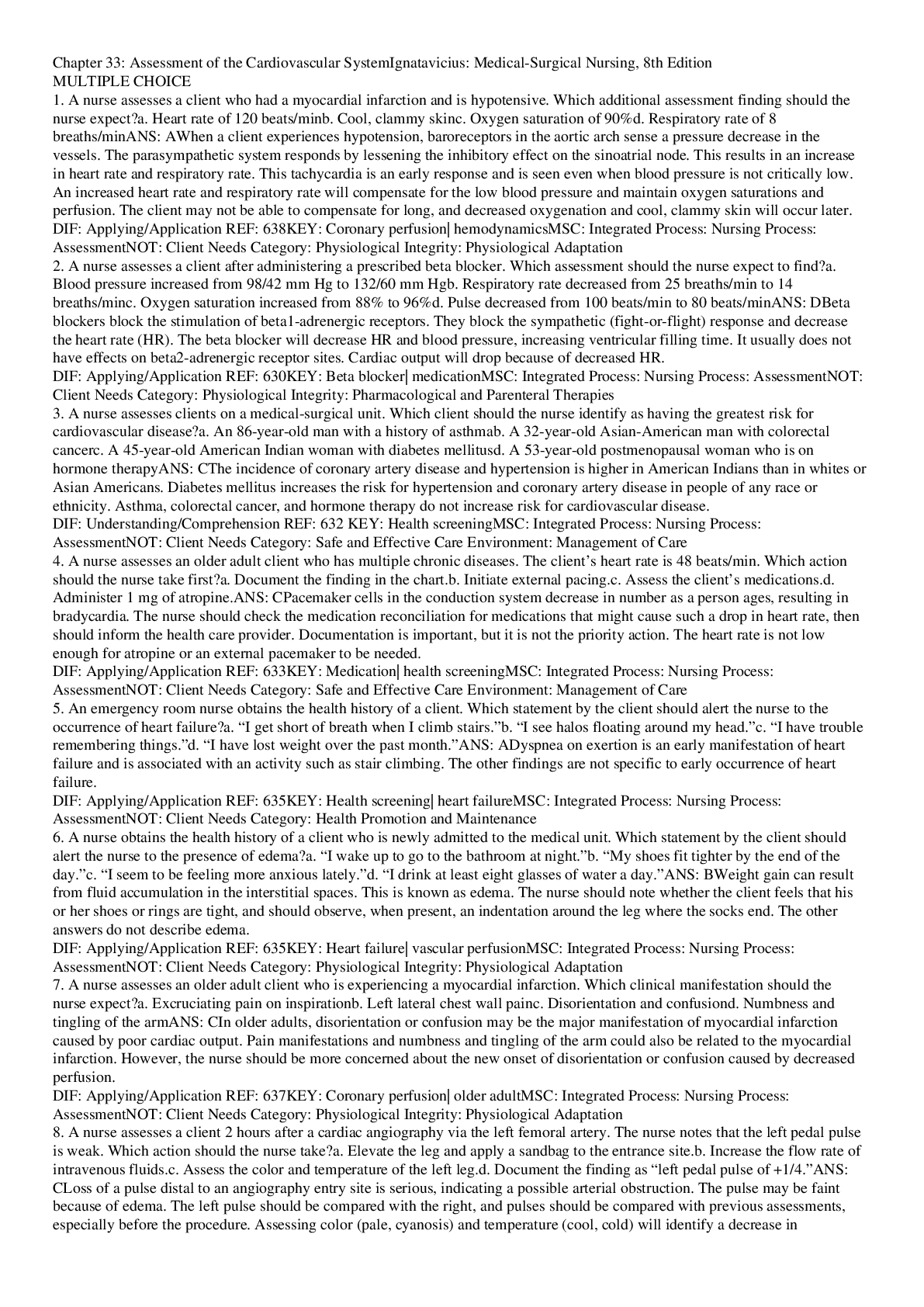
Reviews( 0 )
Document information
Connected school, study & course
About the document
Uploaded On
Jun 13, 2020
Number of pages
11
Written in
Additional information
This document has been written for:
Uploaded
Jun 13, 2020
Downloads
0
Views
52

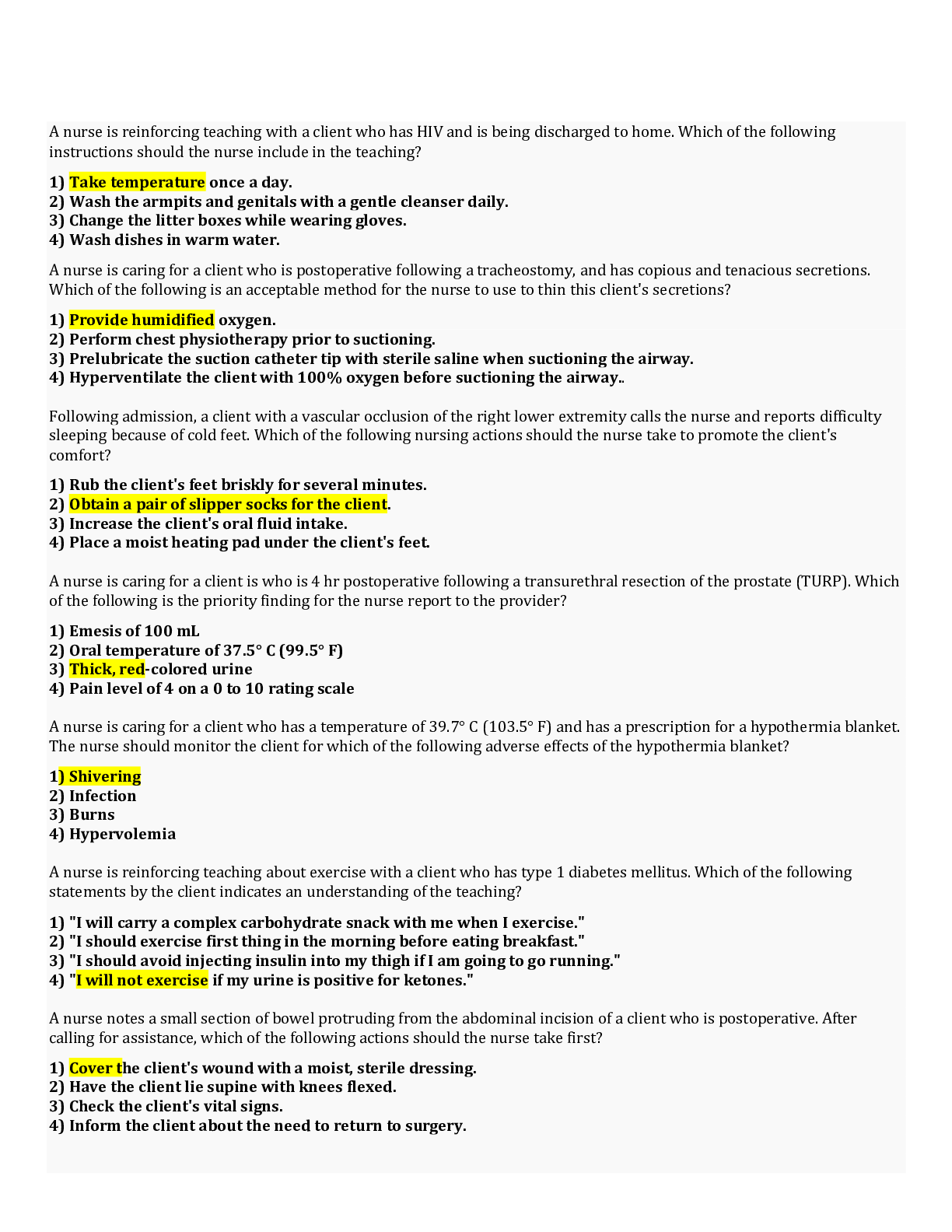
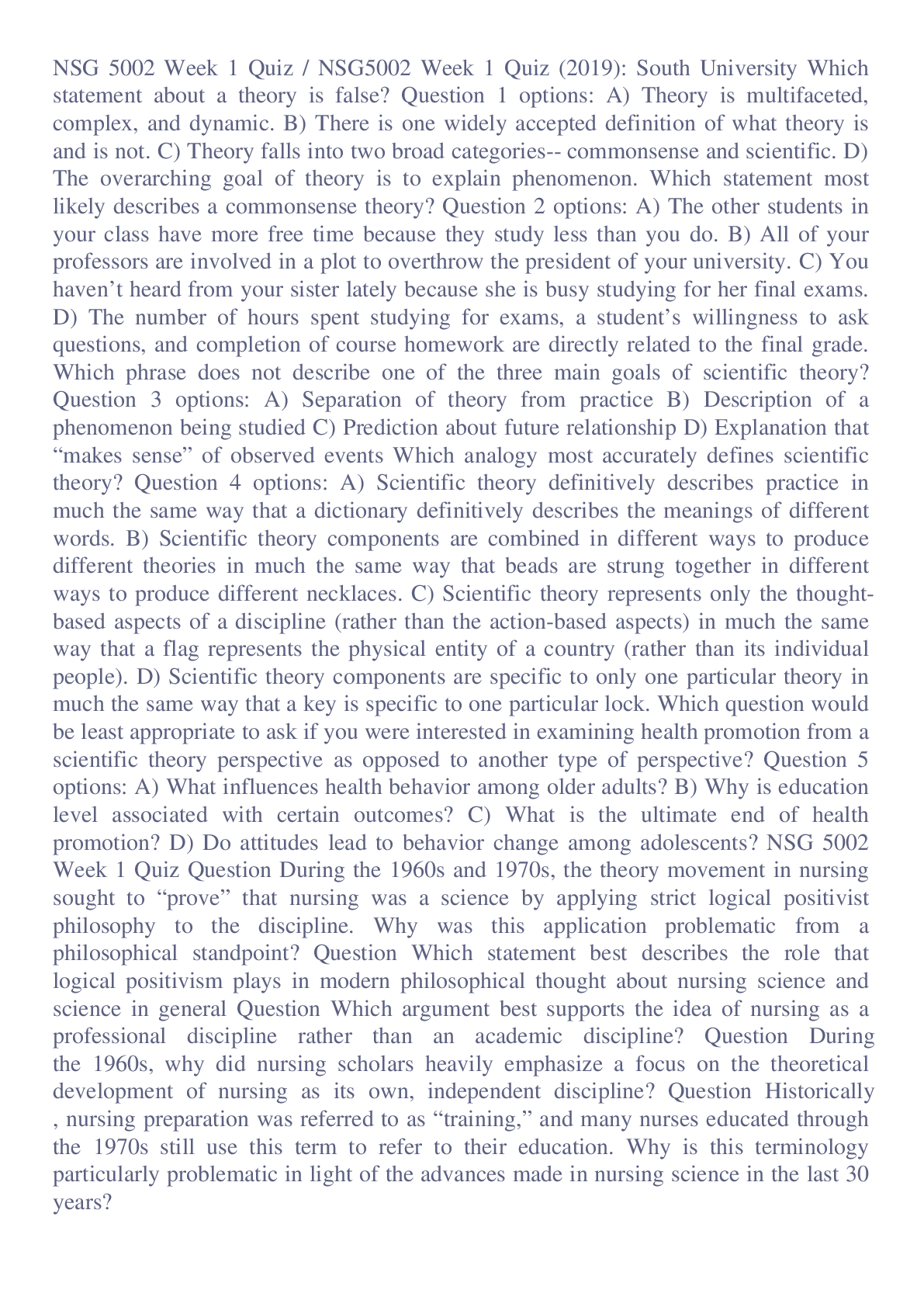
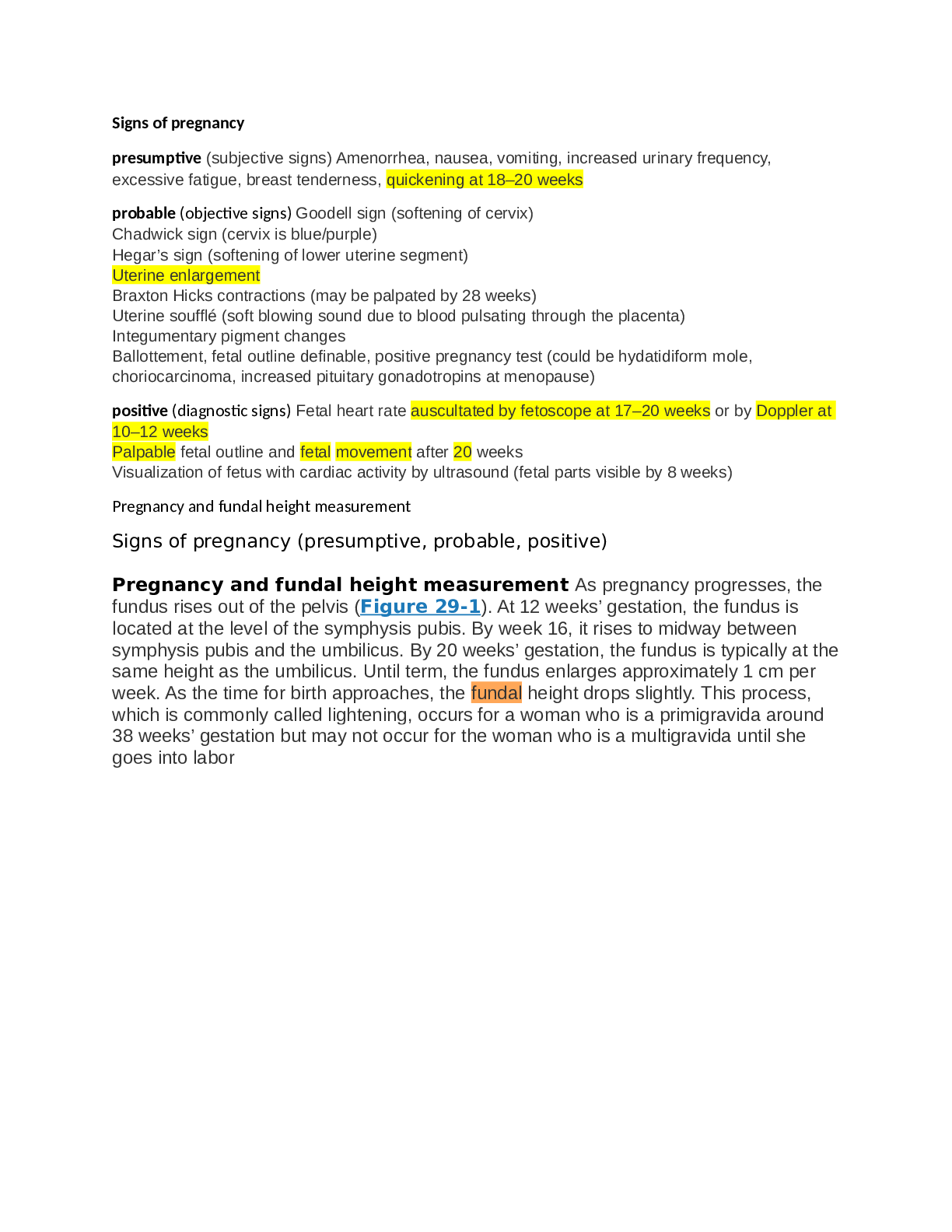




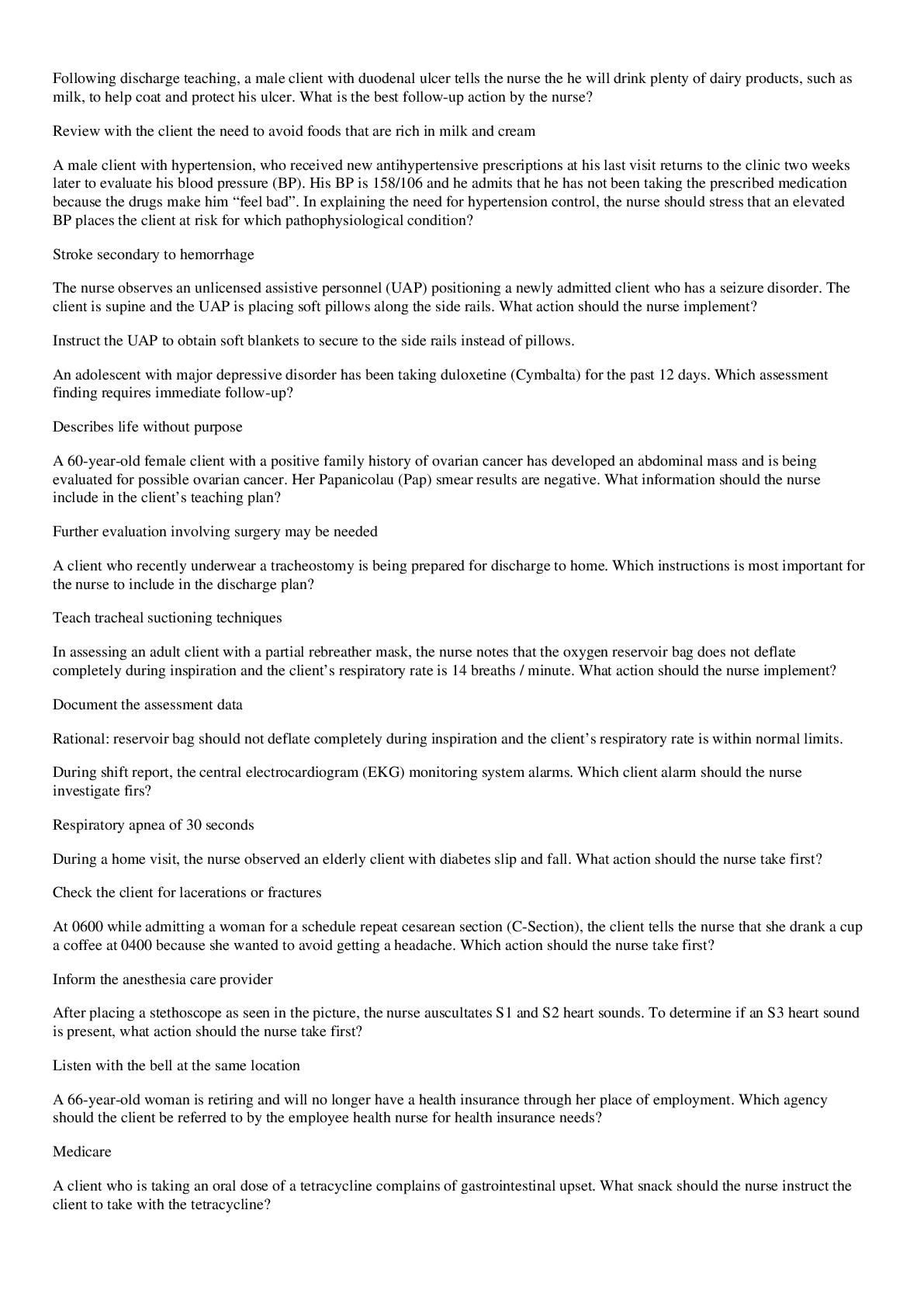
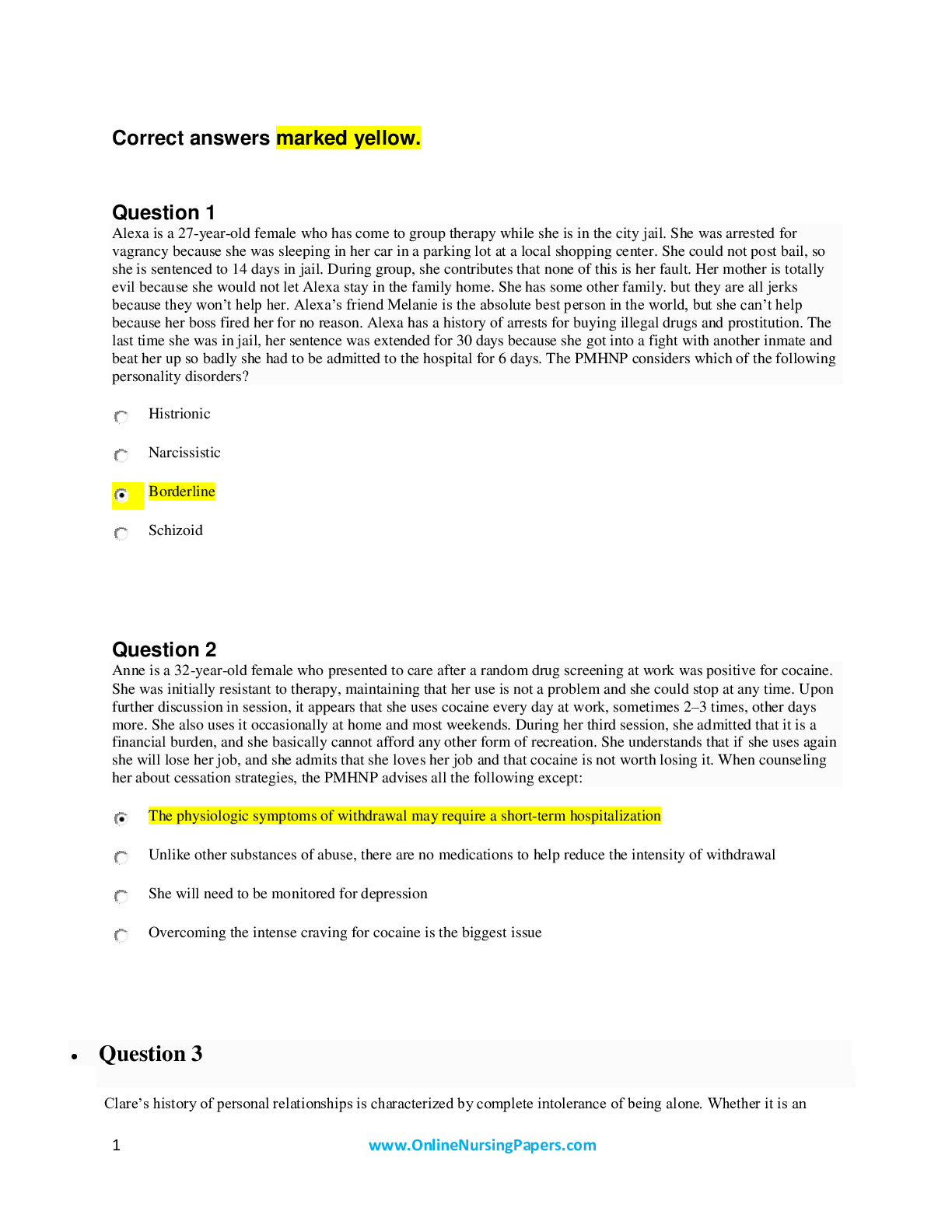
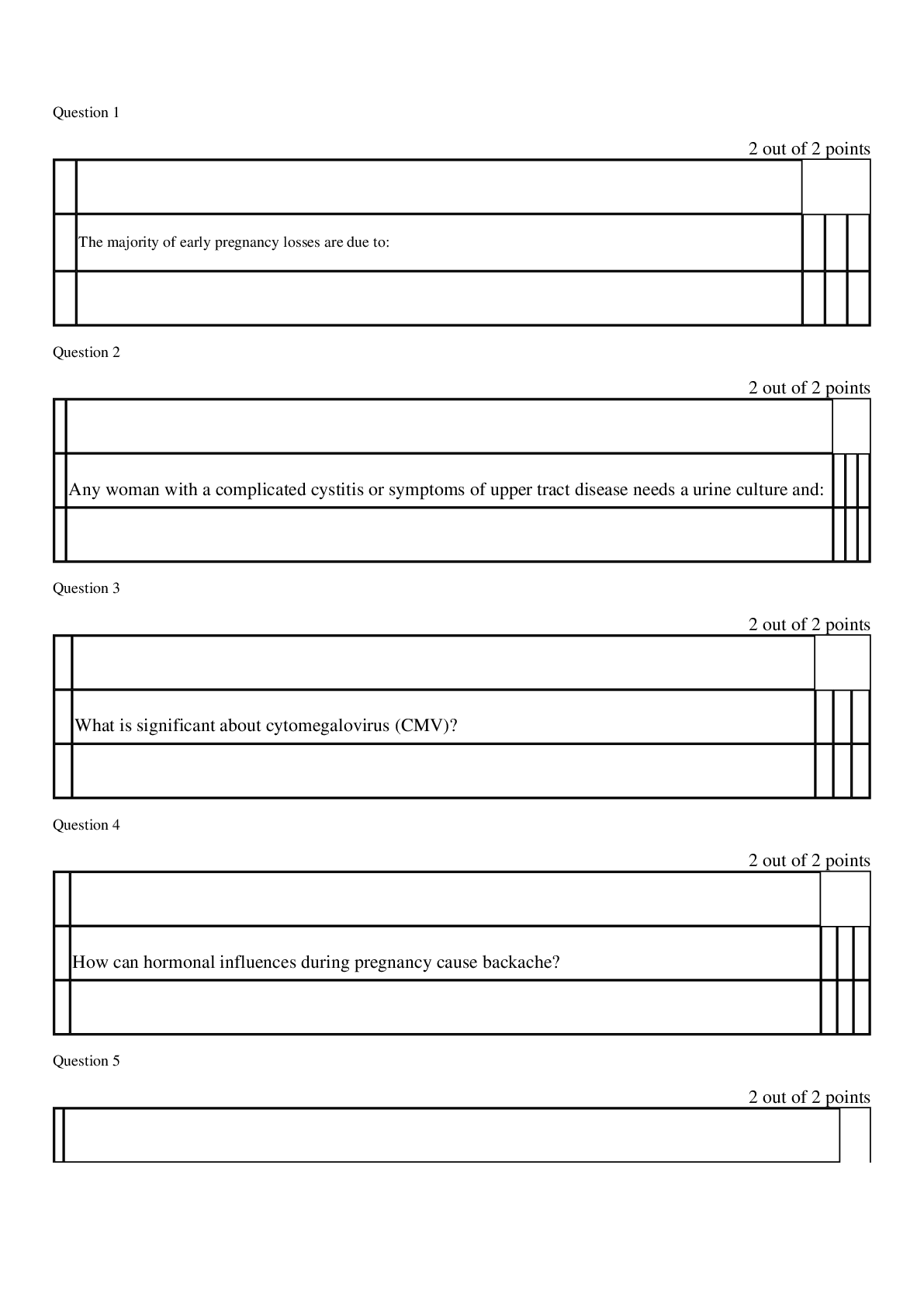
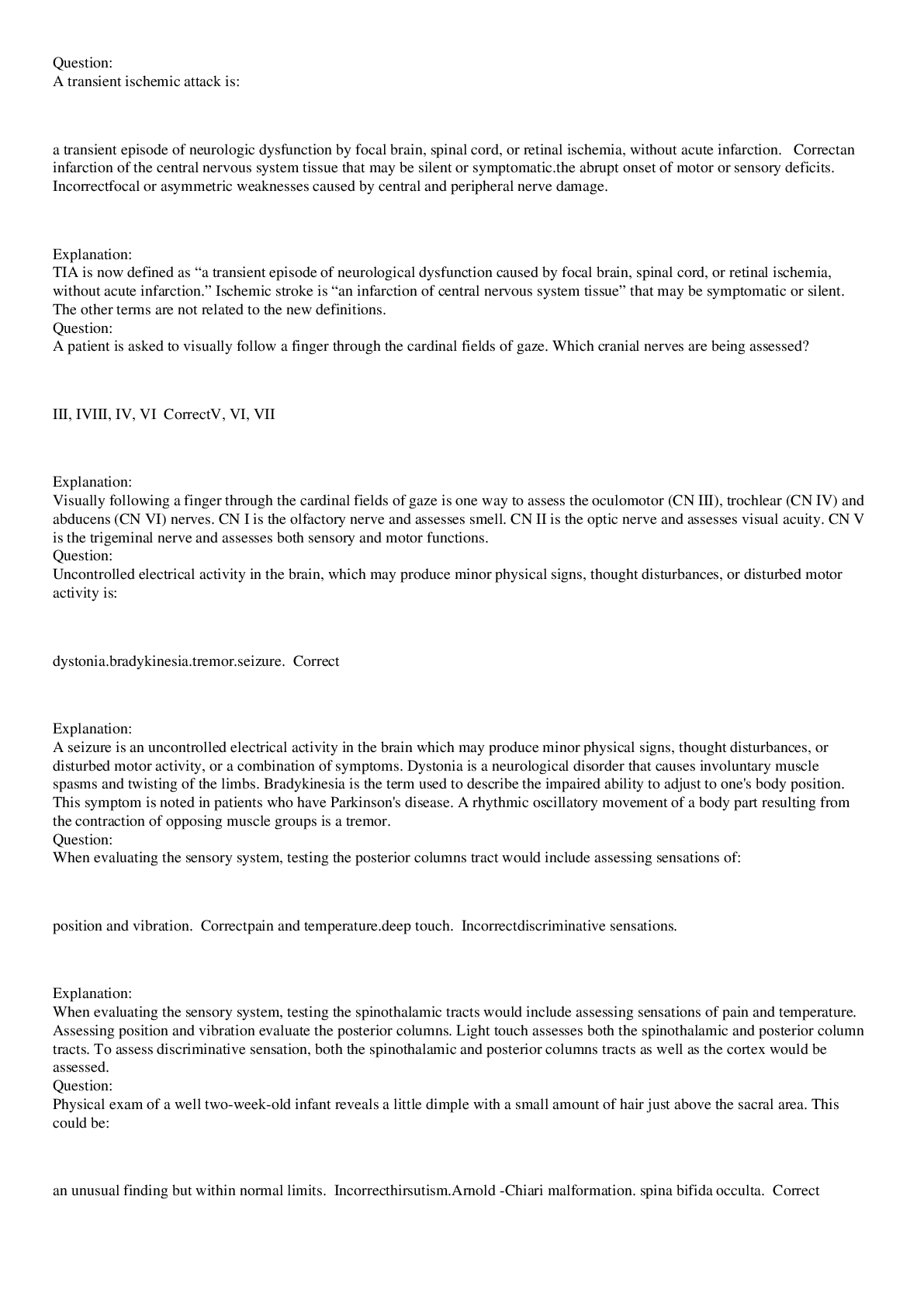
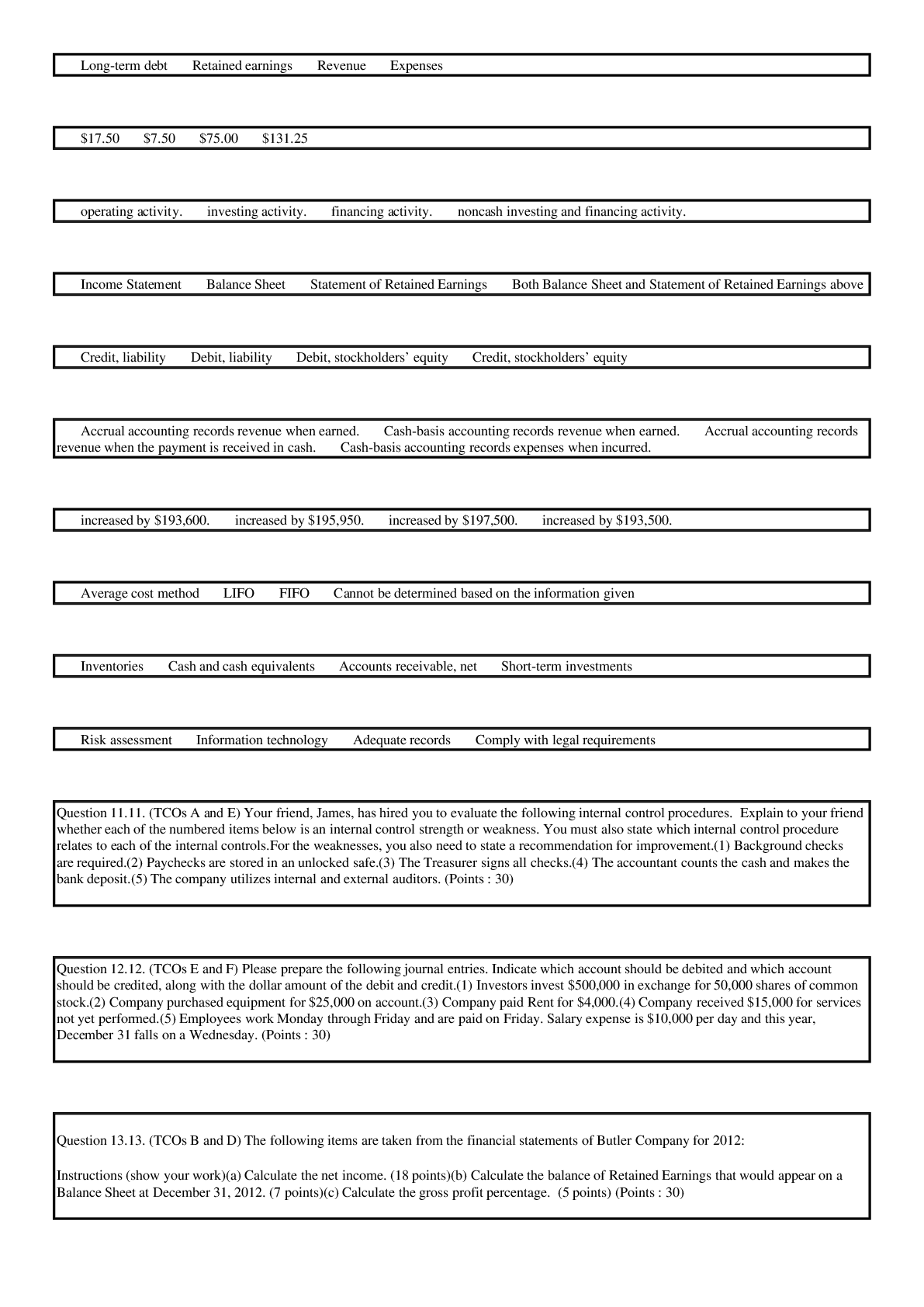
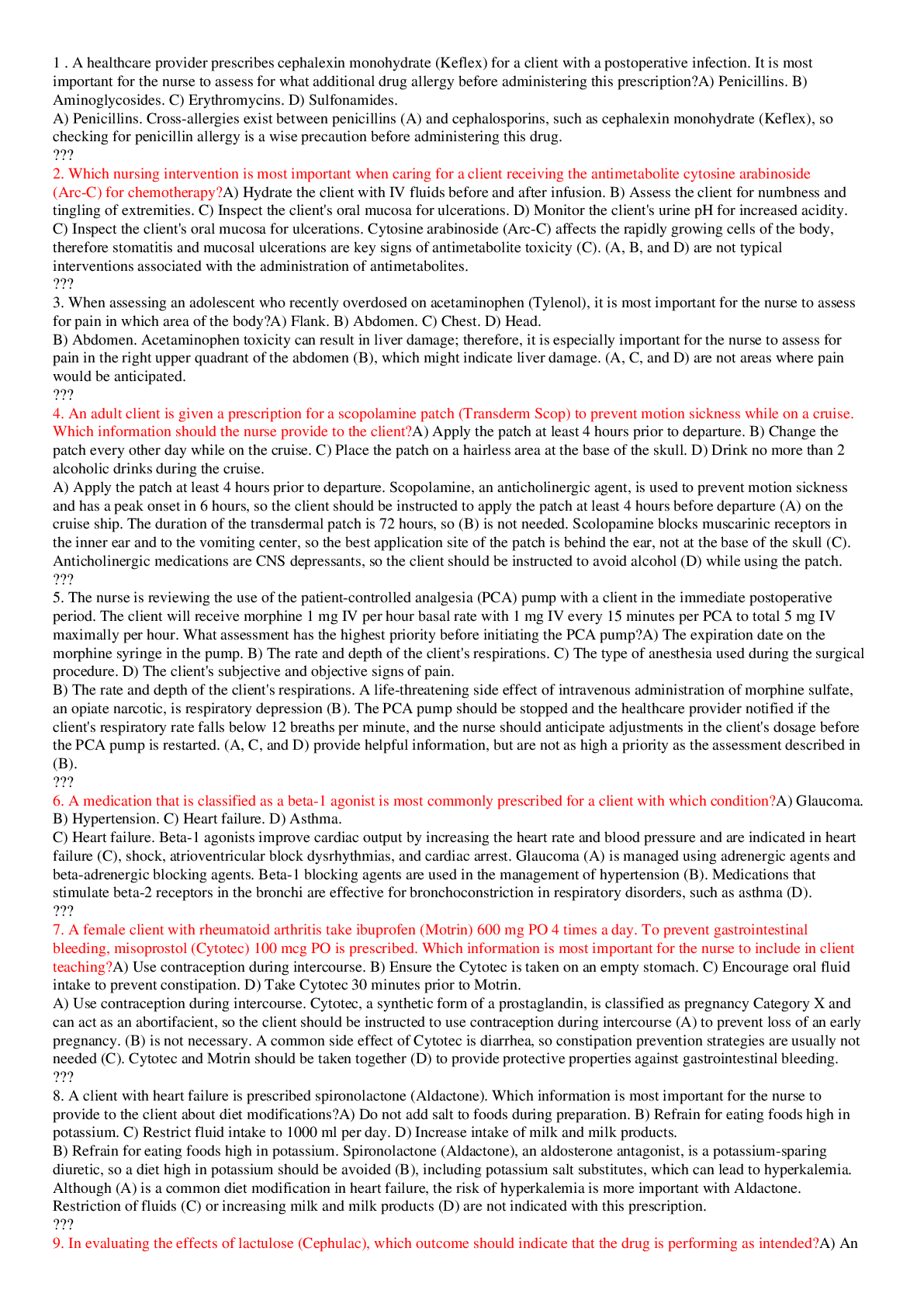

.png)


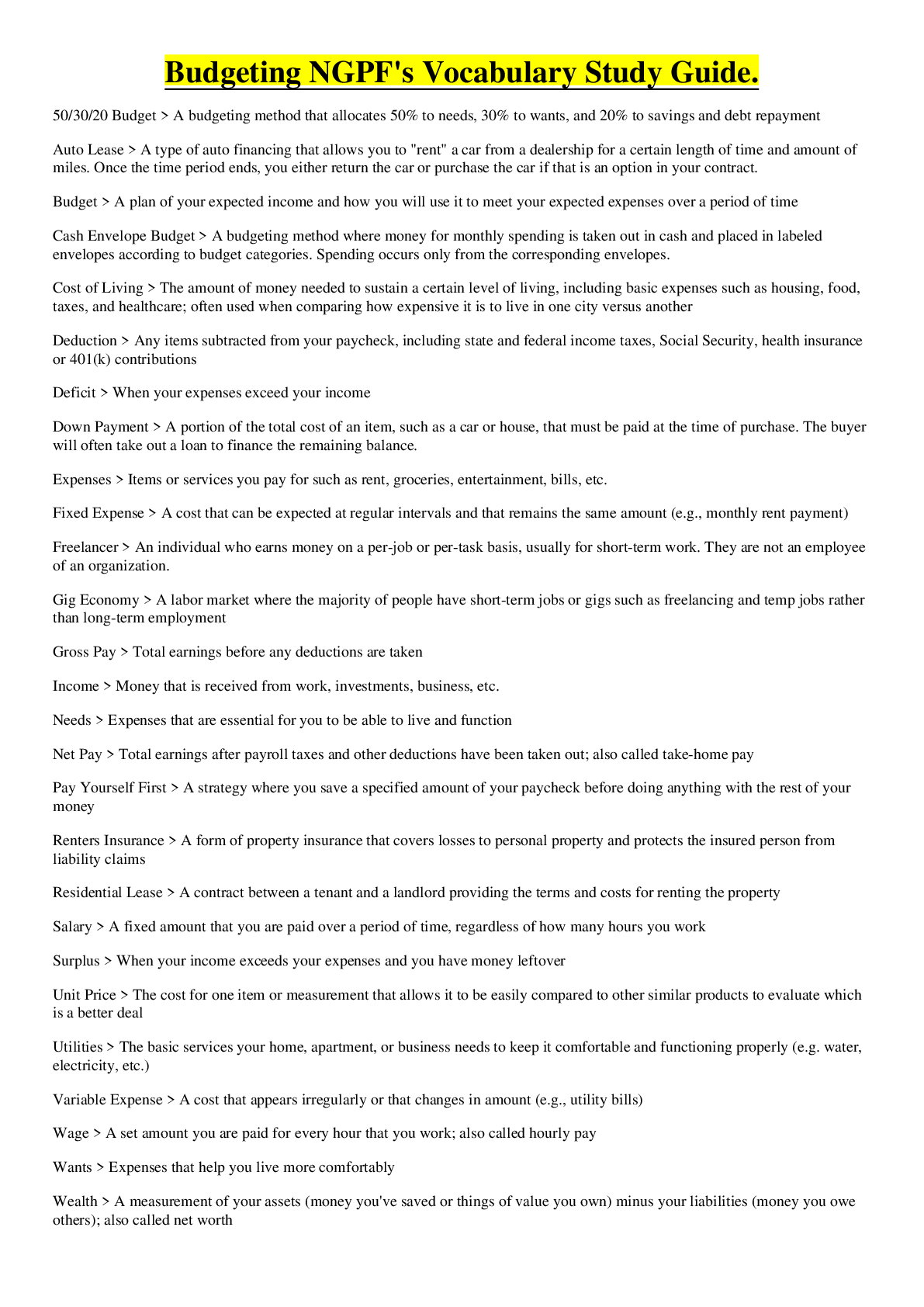

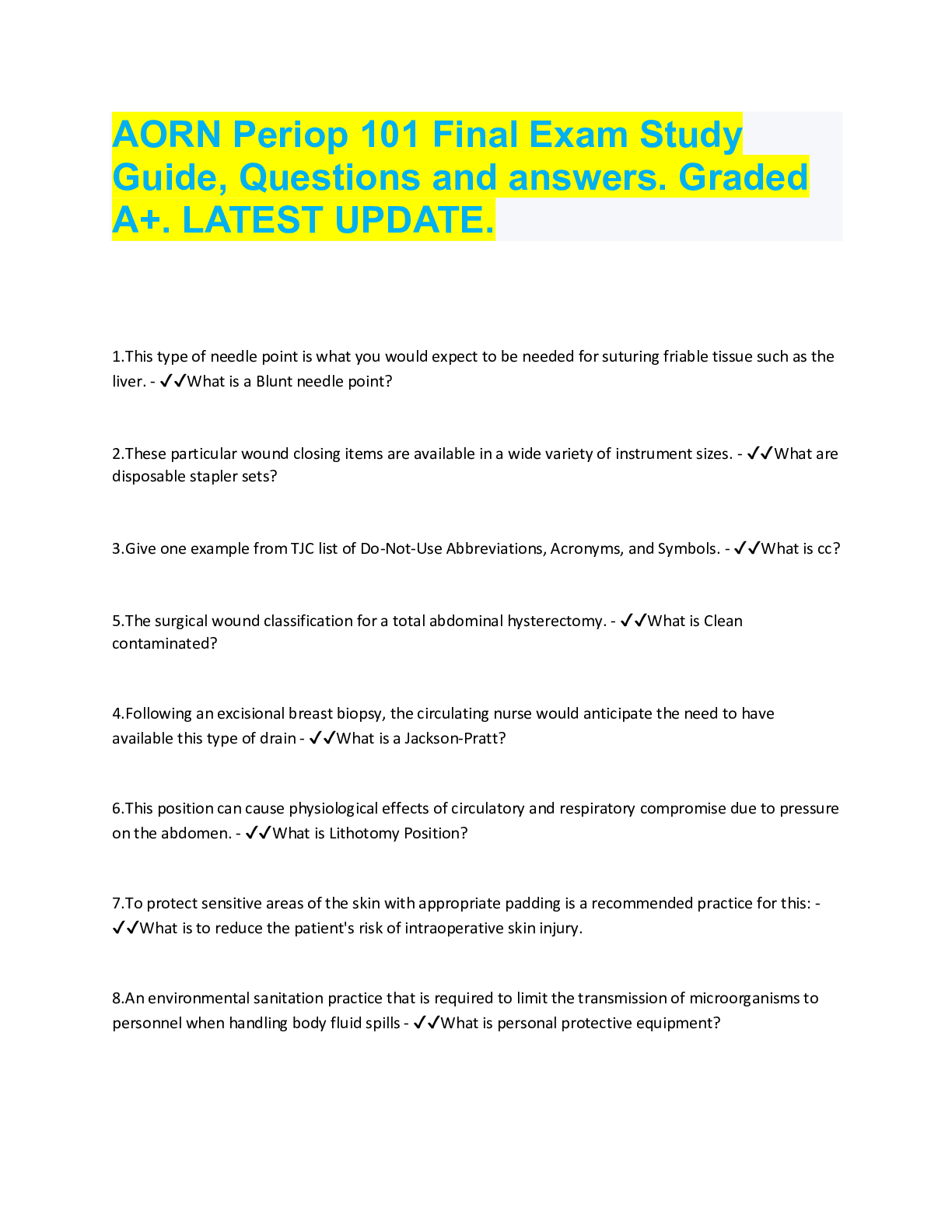
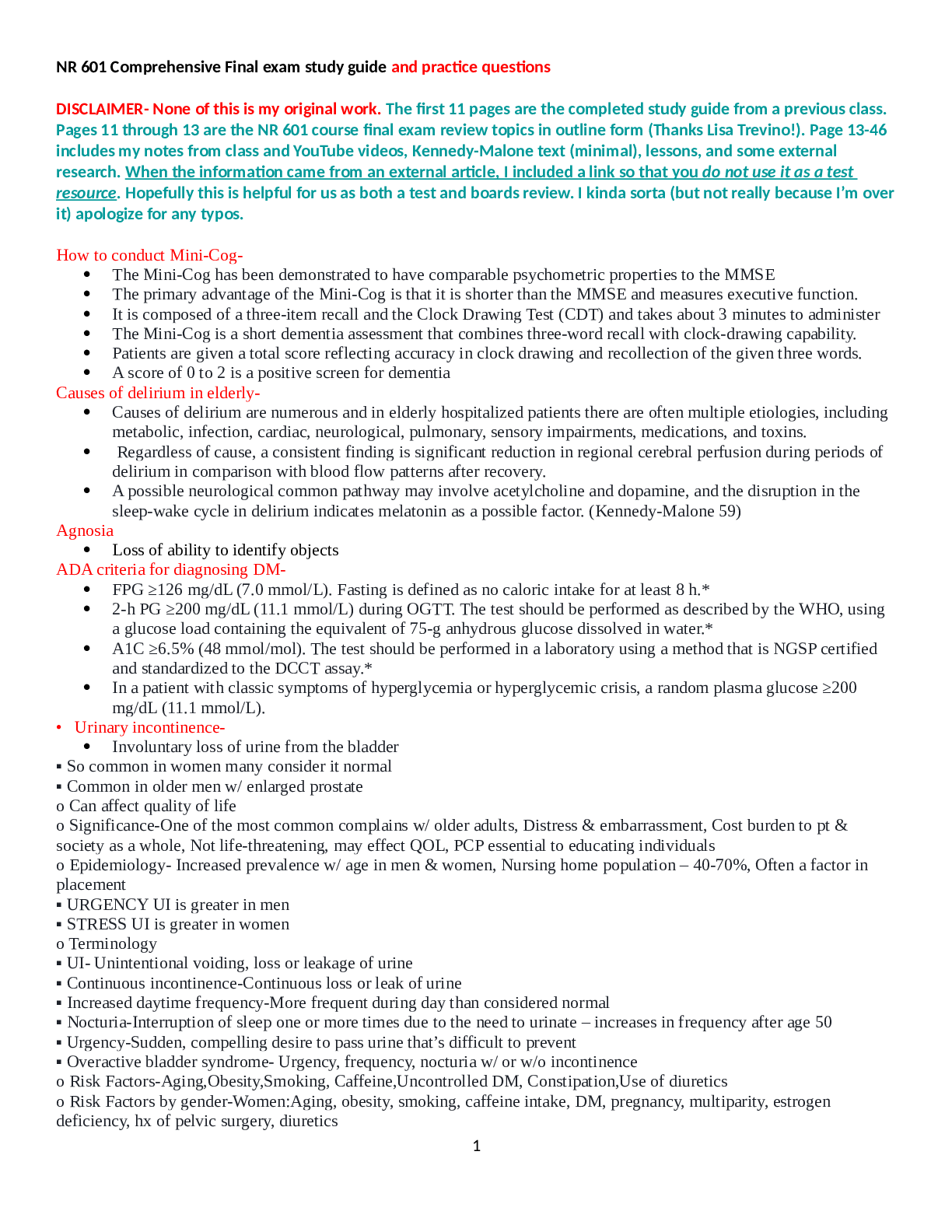



.png)


